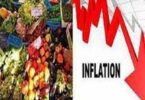F.P. Report
ISLAMABAD: As the country has won early IMF approval for another $700 million payout last week and is seeking more loans to help fragile economy the Federation of Pakistan Chambers of Commerce and Industry’s Businessmen Panel (BMP) has termed the IMF new deal with Pakistan as a positive development for the economy but warned that this bailout alone can’t speed up the economic growth without fundamental reforms.
FPCCI former president and Businessmen Panel (BMP) Chairman Mian Anjum Nisar said that that the multilateral donors financing might not bring any significant impact on struggling economy, as the sustainable solution to Pakistan’s economic issues lies in the structural reforms and consistent policies.
He said the decision to take more loans will keep complicating the problems in longer term, as the government needs $23 billion in foreign debt repayments for this fiscal year, which is the direct result of such decisions of taking loans from foreign nations.
He said that the obvious reason is that foreign exchange reserves are simply not enough to meet the imports. Besides decline in exports, home remittances by the Pakistanis abroad, the other desired form of foreign exchange earnings, also continued to fall. He said that the rupee will strengthen which will reduce inflation, so, the IMF agreement is overall a good development.
Anjum Nisar expressed his opinion on the agreement with the International Monetary Fund and said that there is positive news and now the rupee will strengthen, which will reduce inflation.
He said that agreement is very positive, however, the IMF conditions have increased the cost of production. He said that government will make payments to exporters when fiscal space is created. The upcoming government would need to adhere to measures agreed with the IMF to secure another program next year.
The government is in the middle of a deep economic crisis amid steep currency devaluation and interest rates hikes with its major debt sustainability indicators witnessing marked deterioration during the second half of this fiscal year. Amid the crippling economic crisis, the government will have to return $77.5 billion as external debt in the next three years, that is by 2026.
A report noted that a major portion of the $77.5 billion is owed to China, and has to be paid in June next year when a $1 billion Chinese SAFE deposit and a roughly $1.4 billion Chinese commercial loan would mature.
The report showed that Pakistan’s share of external debt in the total public debt rose from 37% in June to 37.2% by December, heightening the currency risks simultaneously with the rupee sinking and foreign countries shying away from extending loans.
This is synchronous with interest rates at historic highs and the currency devaluing by 56 per cent since the incumbent government came into power a year ago, reported The Express Tribune.
According to the debt bulletin, in dollar terms, Pakistan’s total public debt stood at USD 233 billion by December, including USD 86.6 billion in external public debt.
The country needs to service 28 per cent of its debt in just one year, which is quite a big chunk and will expose the nation to all types of debt-related risks.
The floating rate domestic debt is now $22.5 trillion or 68 per cent of domestic debt, which is poisonous due to interest rates at a record 20 per cent.
Even though the country evaded defaulting in 2023, the year 2024 will be even tougher for the country. This is because the debt servicing will rise to nearly $25 billion.
This includes $15 billion of short-term loans and $7 billion in long-term debt, including a vital $1 billion repayment on a Eurobond in the fourth quarter.
On the other hand, the short-term debt repayments include $4 billion Chinese SAFE deposits, $3 billion Saudi deposits and $2 billion UAE deposits.
All things considered, if the government fails to repay completely, there will be a cascade of disruptive effects. Pakistan’s imports could be disrupted, which could lead to a shortage of some essential goods and commodities.
The experts said that containing exposure to external debt is important to manage the exchange rate risk. The depreciation of the rupee over the last four years against international currencies has resulted in a higher value of external debt when translated into local currency.”
Mian Anjum Nisar called for building a structure in the country, which is in accordance with the requirements of time, as it is easy to weaken institutions but it takes a long time to rebuild them. He said that the economy has just come out of the dark shadows but it is still facing the aftershocks and the businessmen are doing their best to makeup the losses incurred during that period.
He said that only direct taxes can improve tax collection, as the existing tax system is heavily skewed toward indirect taxation. He said the registered businesses are required to comply with various departments involving a lot of financial and time resources, whereas unregistered businesses are free from all such hassles, he maintained.
He also emphasized that concentrating on import substitution is imperative to narrow import bills and certain imported products such as oil are of a fixed nature, therefore, the government needs to enhance focus on import substitution industries, as chemicals, agriculture and steel are potential industries.







